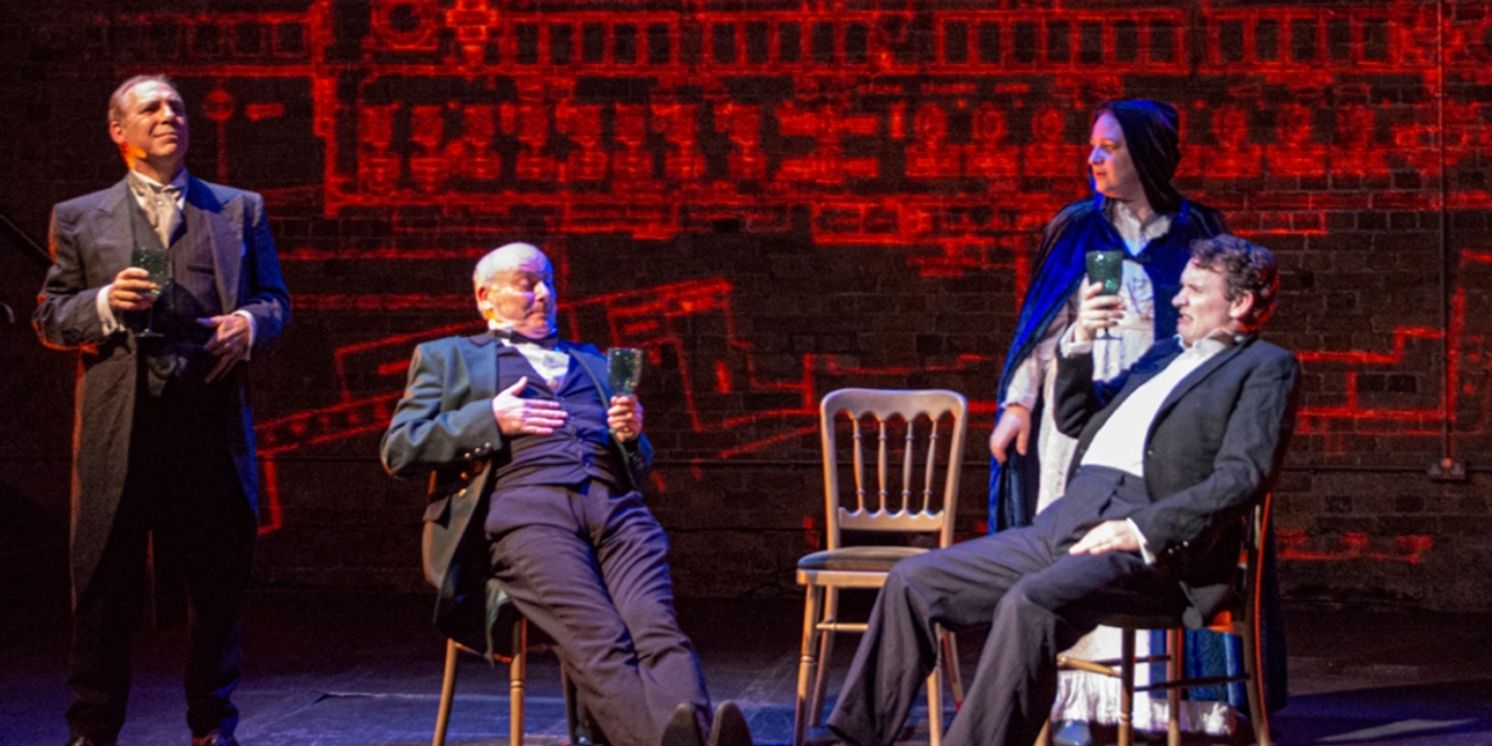Review: GHOSTS ON A WIRE, Union Theatre
Linda Wilkinson writes a historically accurate but tonally odd account layered with fiction that explores the strings attached to progress.

![]() Little did Mary Shelley know that twenty years short of a century after her Modern Prometheus was published, London would see the banks of its river light up lamps across the capital. The pioneer Bankside Power Station was built in north Southwark in 1891 and was in use until the 1980s. Today, the site is mostly known as the Tate Modern, but at the time it destroyed the homes and livelihoods of hundreds of working-class families.
Little did Mary Shelley know that twenty years short of a century after her Modern Prometheus was published, London would see the banks of its river light up lamps across the capital. The pioneer Bankside Power Station was built in north Southwark in 1891 and was in use until the 1980s. Today, the site is mostly known as the Tate Modern, but at the time it destroyed the homes and livelihoods of hundreds of working-class families.
Commissioned by Southwark Council, Linda Wilkinson writes a historically accurate account layered with fiction that explores the strings attached to progress. Author Mary Shelley, William Blake, and human rights activist Octavia Hill coexist in this tonally odd piece, playing ghosts in each other's lives.
Ghosts on a Wire introduces a ruling class that puts industry over humanity. Humble pub landlords are driven out of the city due to the smoke and noise of the plant that's been annihilating their businesses and people dye on the streets. PK Taylor directs the meticulous look at pre-turn of the century Southwark.
The timelines interlace smoothly, but a general lack of stage chemistry and an overly unnatural expositional text make the show a bit clunky. The promised "spectacular" projections are but dynamic backgrounds that - albeit very nicely designed and animated - merely set most of the scenes in place and announce the arrival of a few major characters alongside Jack Baxter's sound design rather than being a key narrative aspect.
A cast of six doubles as toffs and workers, discussing the philosophy of London's industrial trajectory and the birth of new unions. This duality, at times, comes off as farcical in comparison; "I'm just an old Etonian" says Lyon Playfair (Andrew Fettes) when accused of being "positively medieval" by his chum before turning into the good-natured pub landlord William Shelfer.
The social responsibility towards the poor is a central issue with Hill's battle for fair housing and green spaces. Gerri Farrell comes up short, unfortunately coming off under-rehearsed. Implied as a lesbian, she shares a home with her companion Harriot Yorke, played by a much younger Deborah Klayman, who's also Mary Shelley. A ghostly presence clad with a long cloak and an eerily deadpan vibe, Klayman haunts both timelines in spectral fashion.
Timothy Harker's William Blake is a definite highlight as a voice of reason and profound wisdom. He optimistically anticipates a future where clean energy will replace the horrors of that first plant, giving history a more modern outlook. The piece briefly turns on its head three-quarters in with a frankly baffling meta-theatrical musical interlude which sees lyrics projected karaoke-style. It's meant to be quirky, but it's just weird. The ending is formulaic, but reiterates the moral of the play and re-establishes the balance it had before the song bit.
As far as the projections go, Shelley's prophetic lightning strikes again and again as a reminder of human purpose and its cost. Chris Lince's designs are mainly illustrative in style, with faintly allegorical hints. St. Paul's Cathedral is a looming presence in many of them while machinery slowly takes over the back wall, mirroring the industrial development that's happening under its stone facade. There are some interesting transitions, but it's far from "spectacular".
As a whole, the text is remarkable in terms of historical significance, but generally lacks nuance. Wilkinson presents an often overlooked side of progress. "We are part of the problem" says Hill when Yorke mentions all the great electric appliances they can now power. Over a hundred years later, we, like Hill and Yorke, are still divided between advancement and concern, ambition and preservation. History repeats itself.
Ghosts on a Wire runs at the Union Theatre until 8 October.
Photo Credit: Martin Butterworth
Reader Reviews
Videos

